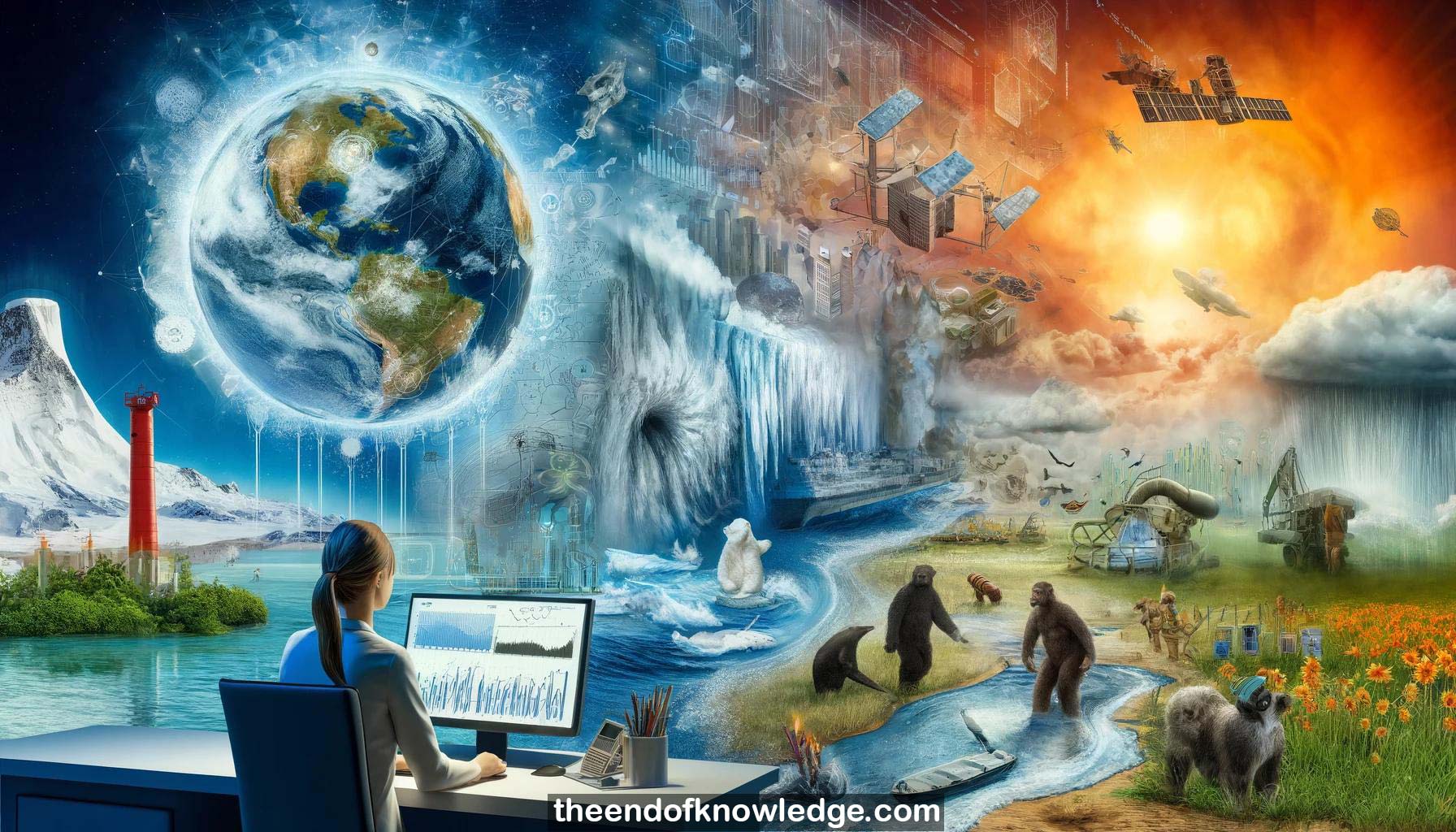 >
>
Concept Graph & Resume using Claude 3 Opus | Chat GPT4 | Gemini Adv | Llama 3:
Resume:
1.-Emily discusses the urgency of addressing climate change and its devastating impacts, such as increased hurricanes and cyclones.
2.-Despite warnings, carbon dioxide levels have risen from 378 ppm in 2005 to 415 ppm today, exacerbating climate change.
3.-A recent report states that one million species are at risk of extinction in the coming decades due to human impact.
4.-Emily asks if machine learning can help understand and reduce the impact of climate change using vast available data sets.
5.-Challenges in applying machine learning to climate data include uncertainty, interpretability, provenance, complexity, non-stationarity, and rare extreme events.
6.-A planetary health check could involve monitoring key indicators, building resilience and adaptation, and addressing climate change directly.
7.-A climate indicators explorer could deliver and visualize data on the changing climate for policymakers and the public to analyze.
8.-Global average surface temperature has risen by 1°C in the last 150 years, approaching concerning thresholds for ice sheet collapse.
9.-Constructing global temperature is complex due to sparse Arctic data; machine learning could help interpolate and synthesize diverse data sets.
10.-A standardized climate risk assessment methodology could enable evidence-based decision-making for adaptation and resilience using machine learning.
11.-Climate models struggle with robust city-level projections; machine learning could map coarse models to observed local weather conditions.
12.-Learning relationships between meteorological variables and impacts like health could connect emission scenarios to future risks using diverse data.
13.-Machine learning can help make energy systems efficient and understand human behavior to develop climate change solutions.
14.-Blending observational data and climate models could improve projections for challenging components like Arctic sea ice.
15.-Data-driven or optimized cloud process simulators using machine learning could enhance climate models' accuracy and efficiency.
16.-Satellite image classification can track icebergs to understand key glacier and ice sheet stability processes.
17.-Causal inference could elucidate physical process relationships within climate models and observations to improve understanding.
18.-Machine learning could infer climate projections for emission scenarios not explicitly modeled, aiding policy-relevant research.
19.-Emily suggests establishing benchmark tasks to drive climate science forward, similar to the ImageNet project's impact.
20.-Improved climate understanding through machine learning could facilitate confidence in geoengineering but requires careful impact assessment.
21.-While many climate datasets exist, significant cleaning and coordination are needed to make them usable for machine learning analysis.
22.-Localizing climate projections using machine learning could make the threat more tangible for the public and policymakers.
23.-Deploying intellectual resources in the AI community could make a major difference in addressing the climate challenge.
24.-Collaboration with initiatives like AI Commons could help formulate and solve critical climate change problems.
25.-Interpretability in machine learning climate models is important for trustworthiness when informing high-stakes policy decisions.
26.-Emily implores the AI community to focus on climate change as one of the most important issues of our time.
27.-The AI community can help tackle climate change by engaging with the problem and facilitating progress.
28.-Fourier, 200 years ago, considered understanding the climate system the most difficult and important question in natural philosophy.
29.-Climate change is a defining issue, and robust information is needed to assess risks and guide responses.
30.-Vast climate datasets exist, but tools to generate actionable information are lacking, presenting a data science challenge for the community.
Knowledge Vault built byDavid Vivancos 2024